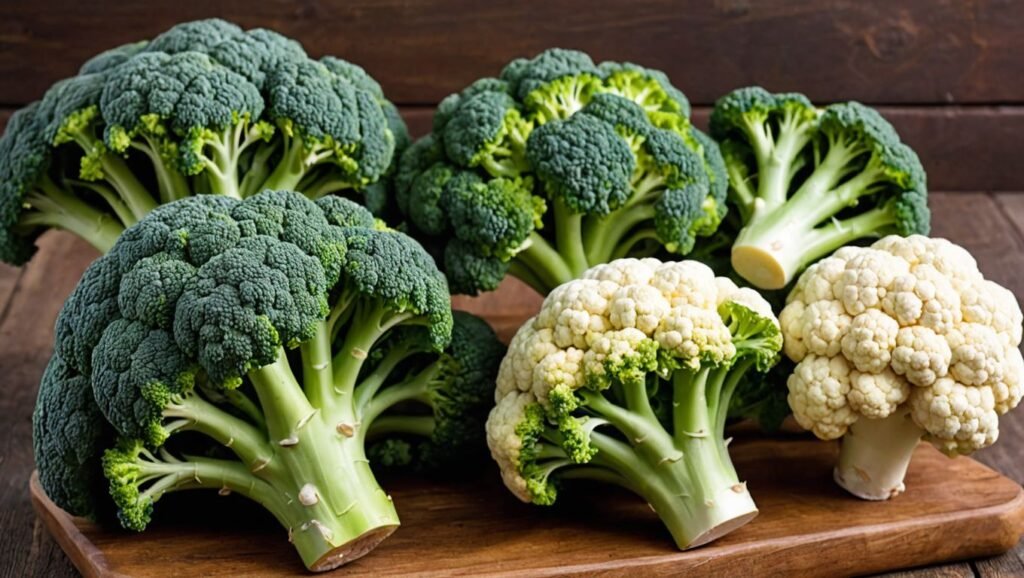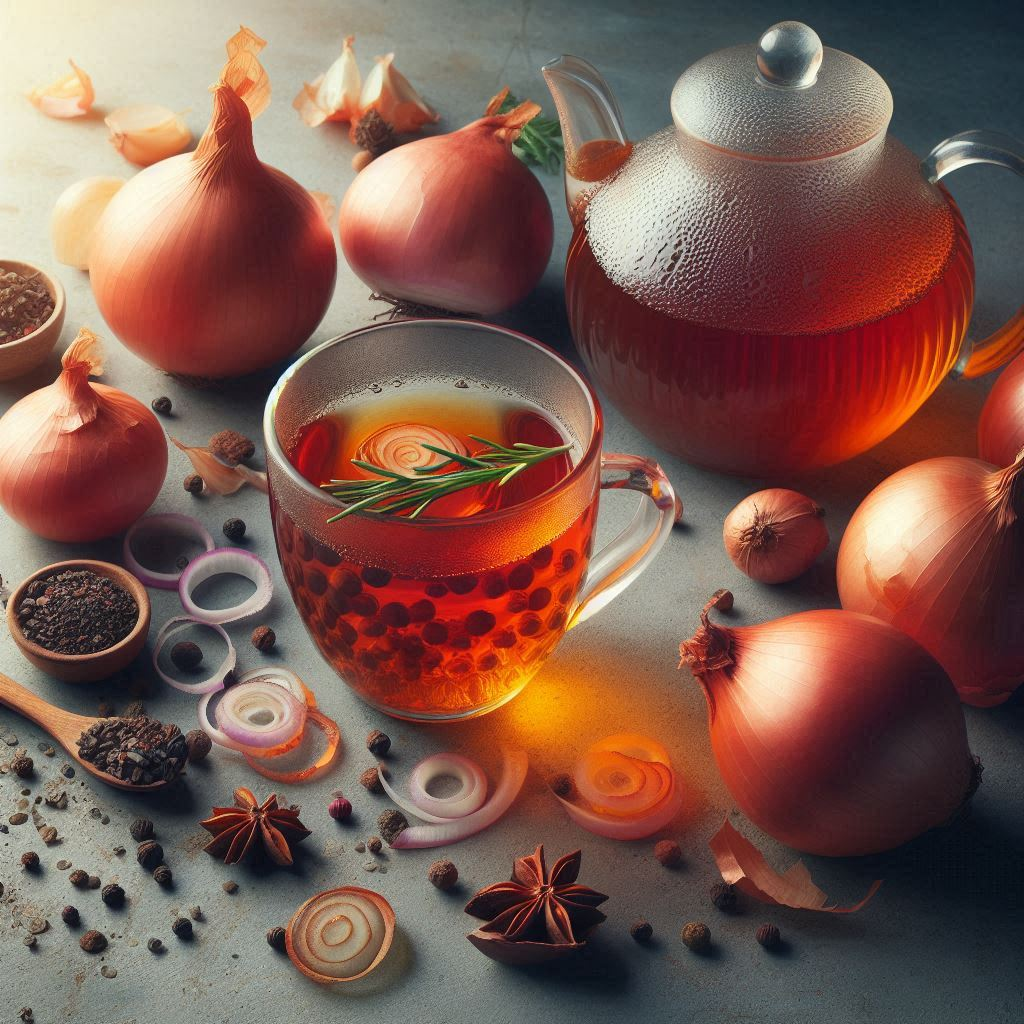“Powerful health benefits await! Discover 10 compelling reasons why broccoli outshines cauliflower in nutrition and wellness. Choose wisely!

Choosing the Right Vegetables for Your Health
Vegetables are a cornerstone of a healthy diet, providing essential nutrients, antioxidants, and fiber that support overall well-being. Among the vast variety of vegetables, broccoli and cauliflower stand out as two of the most versatile and nutrient-packed options. Both belong to the Brassica family and share many similarities in appearance and taste. However, they differ significantly in their nutritional profiles and health benefits. In this article, we will explore the importance of selecting the right vegetables for your health and conduct a detailed comparison of broccoli and cauliflower to help you make informed dietary choices.
Importance of Choosing the Right Vegetables for Health
The food you consume directly impacts your physical and mental well-being. Vegetables, in particular, are rich in vitamins, minerals, antioxidants, and dietary fiber, making them a critical part of any balanced diet. Choosing the right vegetables ensures you get the nutrients your body needs while supporting specific health goals, such as boosting immunity, enhancing digestion, or reducing inflammation. Broccoli and cauliflower, both nutrient-dense, offer a range of benefits, but understanding their unique attributes can help you decide which is better suited to your dietary preferences and health needs.
1. Nutritional Value Comparison
A side-by-side comparison of broccoli and cauliflower reveals distinct differences in their macronutrient and micronutrient profiles.
Nutritional Value Table: Broccoli vs. Cauliflower (per 100 grams)
| Nutrient | Broccoli | Cauliflower |
|---|---|---|
| Calories | 55 kcal | 25 kcal |
| Protein | 4.5 g | 2.0 g |
| Carbohydrates | 11.2 g | 4.9 g |
| Fat | 0.6 g | 0.3 g |
| Fiber | 2.6 g | 2.1 g |
| Vitamin C | 89.2 mg | 48.2 mg |
| Vitamin K | 101.6 mcg | 15.5 mcg |
| Calcium | 47 mg | 22 mg |
| Iron | 0.73 mg | 0.42 mg |
Comparison Table
| Aspect | Broccoli | Cauliflower |
|---|---|---|
| Antioxidant Content | High | Moderate |
| Fiber Content | High | Moderate |
| Vitamin C Levels | Very High | Moderate |
| Cancer-Fighting Properties | Strong | Moderate |
| Bone Health Benefits | High (Calcium, Vitamin K) | Moderate |
| Heart Health Benefits | High | Moderate |
| Weight Management | Effective | Effective |
| Skin Health Benefits | High | Moderate |
| Versatility in Cooking | Very Versatile | Versatile |
Explanation of Key Differences
- Macronutrients: Broccoli is higher in calories, protein, and carbohydrates, making it more suitable for those seeking energy and muscle-building nutrients.
- Micronutrients: Broccoli boasts significantly higher levels of Vitamin C, Vitamin K, and calcium, supporting immunity, bone health, and blood clotting. Cauliflower, while lower in these vitamins, is still a valuable source of nutrients.
- Fiber: Both vegetables are excellent sources of dietary fiber, but broccoli has a slight edge, promoting better digestion.
2. Antioxidant Content
Importance of Antioxidants
Antioxidants are compounds that protect the body from damage caused by free radicals, unstable molecules linked to chronic diseases such as heart disease, cancer, and aging. Including antioxidant-rich foods in your diet is essential for reducing oxidative stress and maintaining cellular health.
Comparison of Antioxidant Levels
- Broccoli: Packed with antioxidants like sulforaphane, lutein, and beta-carotene, broccoli has been widely studied for its cancer-fighting properties and ability to detoxify the body.
- Cauliflower contains antioxidants like glucosinolates and isothiocyanates, which support liver function and reduce inflammation.
Health Benefits of Antioxidants
Both vegetables contribute to:
- Lowering the risk of chronic diseases.
- Reducing inflammation in the body.
- Supporting skin health and reducing the signs of aging.
3. Fiber Content
Role of Fiber in Digestion and Overall Health
Dietary fiber is crucial for maintaining healthy digestion, preventing constipation, and supporting gut health. Fiber also plays a role in regulating blood sugar levels, promoting heart health, and aiding in weight management by inducing feelings of fullness.
Comparison of Fiber Content
- Broccoli contains 2.6 grams of fiber per 100 grams, making it slightly higher in fiber than cauliflower.
- Cauliflower: Provides 2.1 grams of fiber per 100 grams, still a good source but slightly lower than broccoli.
Benefits of Higher Fiber Intake
- Improves bowel regularity and gut health.
- It helps manage cholesterol levels and supports cardiovascular health.
- Aids in weight loss by enhancing satiety and reducing overall calorie intake.
Conclusion
Both broccoli and cauliflower are powerhouse vegetables, each offering unique health benefits. While broccoli stands out for its higher nutrient and antioxidant content, cauliflower is an excellent low-calorie option with its own set of advantages. Incorporating both vegetables into your diet ensures a diverse intake of essential nutrients and promotes optimal health. By understanding their nutritional profiles, you can tailor your vegetable choices to meet your specific dietary needs and preferences.
4. Vitamin C Levels
Importance of Vitamin C for Immune Health
Vitamin C is a powerful antioxidant essential for strengthening the immune system. It enhances the production of white blood cells, which are crucial for fighting infections, and supports the function of skin barriers against harmful pathogens. Additionally, Vitamin C promotes faster healing of wounds and contributes to overall cellular health by reducing oxidative stress.
Comparison of Vitamin C Levels in Broccoli and Cauliflower
- Broccoli: contains an impressive 89.2 mg of vitamin C per 100 grams, surpassing many fruits like oranges.
- Cauliflower: Provides 48.2 mg of vitamin C per 100 grams, which is still a substantial amount but significantly lower than broccoli.
Health Benefits of Vitamin C
- Boosts Immunity: strengthens the body’s natural defense system against illnesses.
- Promotes Healthy Skin: Encourages collagen production for skin elasticity and repair.
- Enhances Iron Absorption: Aids in the absorption of plant-based iron, reducing the risk of anemia.
5. Cancer-Fighting Properties
Overview of Cancer-Fighting Compounds in Vegetables
Cruciferous vegetables like broccoli and cauliflower are rich in bioactive compounds known for their anti-cancer properties. Key components such as glucosinolates, sulforaphane, and isothiocyanates have been shown to inhibit the growth of cancer cells and support the body’s natural detoxification processes.
Comparison of Cancer-Fighting Properties
- Broccoli contains higher levels of sulforaphane, a potent compound known for its ability to neutralize carcinogens and protect DNA from damage.
- Cauliflower provides glucosinolates and isothiocyanates, which contribute to reducing inflammation and preventing the development of cancer cells.
Studies and Research Findings
- Research indicates that sulforaphane in broccoli is particularly effective in reducing the risk of cancers such as breast, prostate, and colorectal cancer.
- Studies on cauliflower suggest its role in protecting against liver and lung cancers due to its detoxifying properties.
6. Bone Health
Importance of Nutrients for Bone Health
Strong bones rely on a diet rich in calcium, vitamin K, and other minerals. Calcium is essential for maintaining bone density, while vitamin K plays a crucial role in bone mineralization and reducing the risk of fractures.
Comparison of Calcium and Vitamin K Levels
- Broccoli:
- Calcium: 47 mg per 100 grams.
- Vitamin K: 101.6 mcg per 100 grams, significantly higher than cauliflower.
- Cauliflower:
- Calcium: 22 mg per 100 grams.
- Vitamin K: 15.5 mcg per 100 grams.
Benefits for Bone Health
- Broccoli: Its higher calcium and vitamin K content make it more effective in supporting bone strength and preventing osteoporosis.
- Cauliflower: While lower in bone-supporting nutrients, it still contributes to maintaining overall bone health when consumed as part of a balanced diet.
7. Heart Health
Role of Vegetables in Maintaining Heart Health
Vegetables play a critical role in promoting cardiovascular health by reducing blood pressure, lowering cholesterol levels, and improving arterial function. They are rich in potassium, fiber, and antioxidants, which collectively support a healthy heart.
Comparison of Heart-Healthy Nutrients
- Broccoli:
- High in potassium, which helps regulate blood pressure.
- Contains more dietary fiber, aiding in cholesterol management.
- Abundant in antioxidants like sulforaphane, which protect the heart from oxidative stress.
- Cauliflower:
- Provides moderate levels of potassium and fiber.
- Contains glucosinolates that reduce inflammation and improve heart health.
Benefits for Cardiovascular Health
- Broccoli: May lower the risk of heart disease by improving cholesterol profiles and reducing arterial plaque buildup.
- Cauliflower supports heart health through its anti-inflammatory properties and contribution to a balanced diet.
Conclusion
The nutritional distinctions between broccoli and cauliflower demonstrate that both vegetables offer distinct and significant health advantages. By incorporating them into your diet, you can optimize your intake of essential nutrients, antioxidants, and fiber, supporting your overall health, immunity, and longevity. Whether you prioritize higher Vitamin C levels, cancer-fighting properties, or heart health, both vegetables can play a crucial role in achieving a balanced and nutritious lifestyle.
8. Weight Management
Importance of Low-Calorie, Nutrient-Dense Foods for Weight Management
Weight management relies on a balance between calorie intake and nutrient consumption. Low-calorie, nutrient-dense foods help control weight by providing essential vitamins and minerals without adding excessive calories. These foods also promote satiety, reducing the likelihood of overeating.
Comparison of Calorie Content and satisfaction Levels
- Broccoli:
- Contains 55 calories per 100 grams.
- Higher fiber and protein content contribute to greater satiety, making it a preferred choice for weight control.
- Cauliflower:
- Contains only 25 calories per 100 grams.
- While lower in calories, it has less fiber and protein, which may make it slightly less filling than broccoli.
Benefits for Weight Management
- Broccoli: Ideal for those seeking a satisfying, nutrient-rich addition to their meals.
- Cauliflower: Excellent for low-calorie diets and as a versatile substitute for high-carb foods like rice or potatoes.
9. Skin Health
Role of Vitamins and Minerals in Skin Health
Healthy skin depends on a diet rich in vitamins like C and K, as well as antioxidants that protect against oxidative damage and promote collagen production. These nutrients help maintain skin elasticity, reduce inflammation, and combat premature aging.
Comparison of Skin-Boosting Nutrients
- Broccoli:
- Rich in Vitamin C (89.2 mg) for collagen production and repair.
- Contains Vitamin K and antioxidants like lutein, which combat oxidative stress.
- Cauliflower:
- Moderate levels of Vitamin C (48.2 mg) and antioxidants support skin health, but to a lesser extent than broccoli.
Benefits for Skin Health
- Broccoli promotes vibrant, youthful skin and helps repair damage caused by UV rays.
- Cauliflower supports overall skin health and complements other skin-boosting foods in your diet.
10. Versatility in Cooking
Overview of Culinary Uses for Broccoli and Cauliflower
Broccoli and cauliflower are culinary powerhouses, adaptable to various cuisines and cooking methods. Their mild flavors and unique textures make them suitable for steaming, roasting, stir-frying, or blending into soups and sauces.
Comparison of Taste, Texture, and Versatility
- Broccoli:
- Taste: Slightly sweet and earthy with a hint of bitterness.
- Texture: Crisp when cooked, making it ideal for stir-fries and salads.
- Versatility: Works well in savory dishes, as a roasted side, or even blended into smoothies.
- Cauliflower:
- Taste: mild, nutty flavor that absorbs seasonings well.
- Texture: dense and slightly creamy when cooked, perfect for mashing, roasting, or making cauliflower rice.
Popular Recipes and Cooking Tips
- Broccoli:
- Roasted broccoli with garlic and parmesan.
- Broccoli stir-fry with soy sauce and sesame seeds.
- Creamy broccoli soup.
- Cauliflower:
- Cauliflower rice or mashed cauliflower.
- Buffalo cauliflower bites.
- Cauliflower crust pizza.
Conclusion
Recap of the 10 Powerful Reasons to Choose Broccoli Over Cauliflower
- Higher Nutritional Value: Richer in protein, vitamins, and minerals.
- Superior antioxidant content: provides sulforaphane for detoxification and cancer prevention.
- Better Fiber Source: Supports digestion and satiety.
- Higher vitamin C levels: enhance immunity and skin health.
- Strong Cancer-Fighting Properties: More effective in neutralizing carcinogens.
- Supports Bone Health: Higher in calcium and Vitamin K for stronger bones.
- Promotes Heart Health: Rich in potassium, fiber, and antioxidants.
- Aids in Weight Management: More satiating with higher protein and fiber content.
- Boosts Skin Health: Loaded with skin-enhancing vitamins and antioxidants.
- Versatile in Cooking: A delicious addition to countless recipes.
Encouragement to Incorporate More Broccoli into the Diet
While both vegetables are excellent choices, broccoli’s superior nutrient profile makes it a standout option for those aiming to optimize their health. Incorporate it into your meals regularly to enjoy its myriad benefits.
Final Thoughts on Making Healthy Food Choices
Broccoli and cauliflower are both nutrient-dense and versatile vegetables that deserve a place on your plate. By making informed choices and balancing your diet with a variety of healthy foods, you can take a proactive step toward better health and well-being. Enjoy exploring the unique flavors and benefits of these cruciferous stars!




